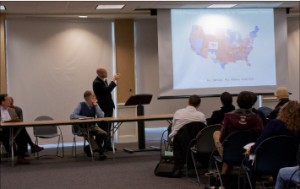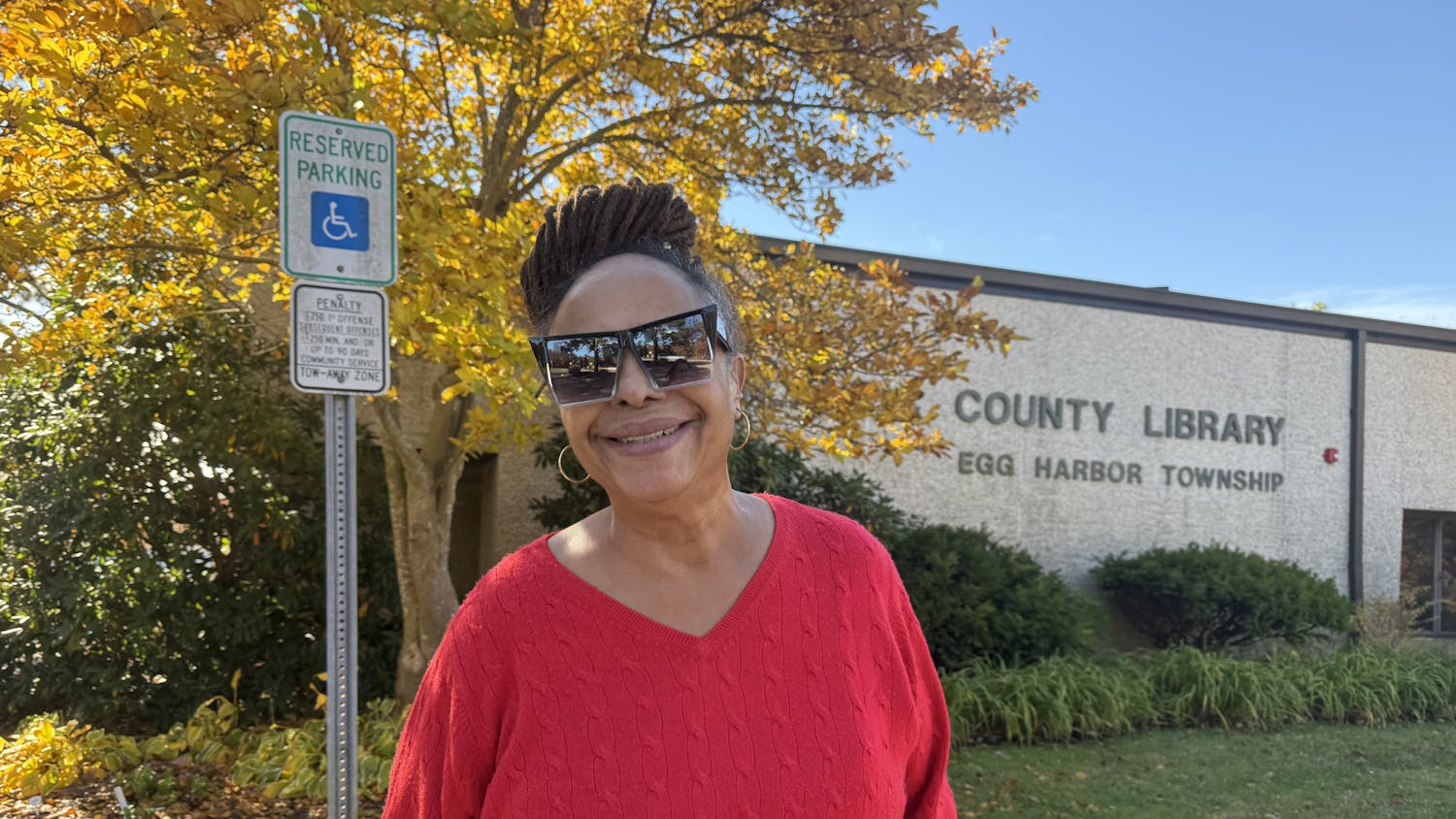
By Kelly Davila
Correspondent
Public buildings across the United States filled with voters on Tuesday, Nov. 2 for the 2010 midterm elections. With important congressional races all over the nation, it was no surprise that this year’s midterm elections would be the main topic of discussion at the politics forum held last Thursday.
Dan Crofts, professor of history, opened the forum with a comparison of Tuesday’s election to those held in 1934. The elections following FDR’s win of 1934, show the same Republican comeback that we see today.
“There are a number of clear reasons for the sweeping Republican comeback,” Crofts said.
The reason for these Republican wins, according to Crofts, range from failure of the banking systems and the collapse of consumer demands to the dying auto industry and controversy in health care. With 46 senate seats and 239 house seats gained, it was a decisive outcome for the Republican Party.
In studying why people vote the way they did, political science professor Stuart G. Koch suggested that the outcome was the result of voter worries.
“This was the third straight election at the national level where the focus has been on change,” Koch said.
Daniel C. Bowen, assistant professor of political science, believed that the voters were influenced by different factors. With color-coded charts and graphs, Bowen included factors like an “enthusiasm gap,” corporate spending on campaigns and candidate qualities in his explanation of the contrast between support for the Democrats in 2008 and support for the Republicans in 2010.
After the presentations, the floor was opened to questions from the audience, most of which were students. There seemed to be an underlying theme of interest: where does this leave our generation?
“The dominant trend is for the younger generation not to vote in accordance with the seniors, with an exception to the Obama administration,” Koch said. “Younger voters are the least to vote … and (also) the more vulnerable voters who respond, more, to the enthusiasm of the campaign itself.”
“Our generation’s greatest problem is ignorance, honestly,” David Michelson, senior political science major, said. “Not so much the debt that the previous generation is leaving us with, but the fact that so many people are unaware of it.”






